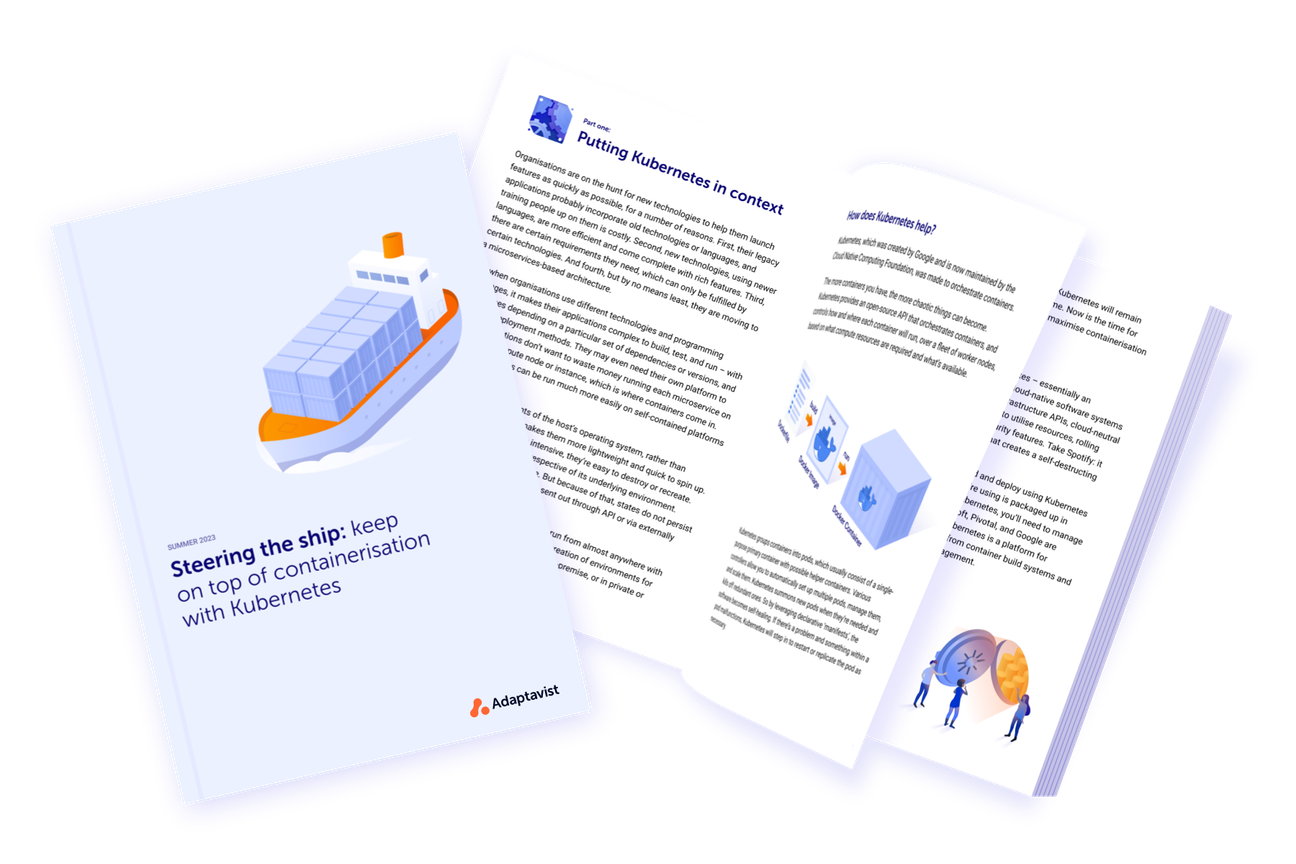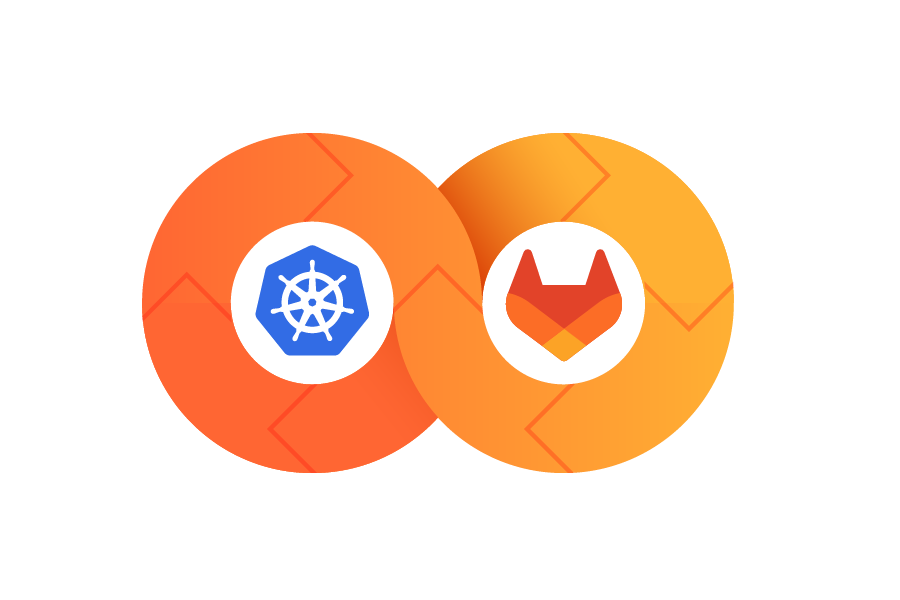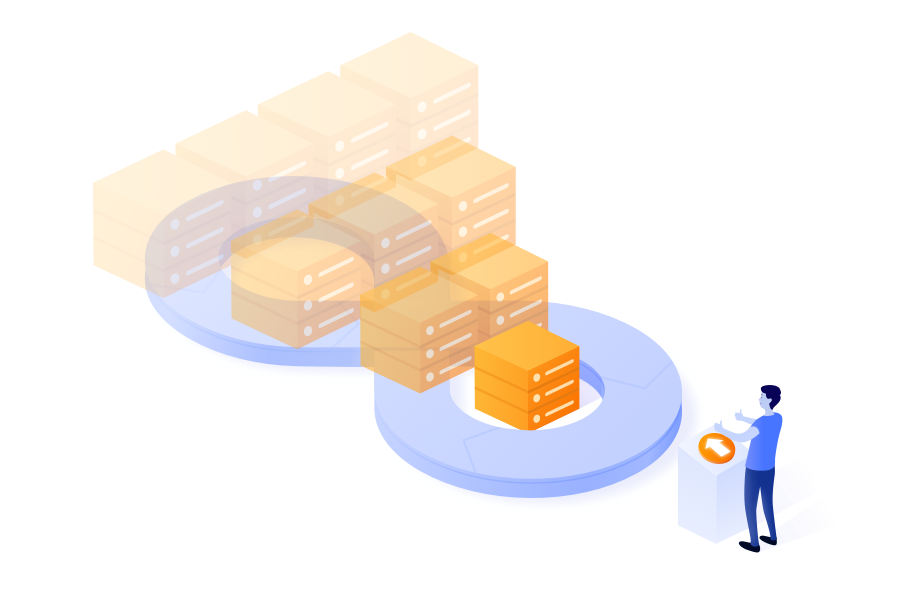DevOps
Kubernetes: the key to containerisation success
Everything you need to know to embrace Kubernetes and revolutionise how you develop and deploy software

As you scale, the more containers you have and the more chaotic things can become. Kubernetes bolsters your IT capabilities and supports agile development and innovation. How? It orchestrates containers, making them much easier to manage.
Kubernetes open-source API lets you take control of how and where each container will run, based on what computer resources it needs and what's available. It's named after the Greek for 'captain' – and it's not hard to see why. It helps you navigate the need for high availability, reliability, scalability, and fault tolerance while keeping costs under control.
With Kubernetes, you can:
With Kubernetes, you can:
- Make containerisation more flexible – easily move apps from local machines to the cloud or change cloud providers and seamlessly switch between environments.
- Scale with ease – spin up the extra capacity when you need it and remove it when you don't, all while monitoring the health of your cluster nodes and containers.
- Simplify availability and reliability – Kubernetes adjusts to ensure high availability and fault tolerance, removing the complexity of your widely distributed environment.
Getting to grips with Kubernetes
If you’re new to Kubernetes, there’s a lot to take in. It’s complex, which means you need skilled engineers to keep on top of it as well as effective automations and efficient management to enable growth.
Getting Kubernetes configured right is the best place to start. The next steps are to think about the benefits of cloud-native storage and cloud-native network functions, shifting your focus further from hardware components to more scalable software solutions.
Take a look at the following resources, where our experts explain some of the key pillars of Kubernetes, including automation, and cloud-native storage and networking.

Automation and configuration explained
From infrastructure-as-code to GitOps, discover the essential things you need to do to configure, automate, and manage your Kubernetes deployment.

Cloud-native storage uncovered
We get you up to speed on cloud-native storage, including the key characteristics and why organisations are turning to it for their Kubernetes-based apps.

Networking the cloud-native way
What is cloud-native networking? What are its key components? What are the benefits? And how does it all relate to Kubernetes? Get all the answers in this useful blog post.
Ready to steer the ship?
Keep on top of containerisation with Kubernetes with our dedicated eBook. It dives into how Kubernetes supports you to solve key challenges and the benefits it brings, helping you decide if it’s right for your organisation.

How to simplify Kubernetes and GitLab Runner
Learn how monitoring your Kubernetes cluster and the GitLab runners deployed in it can be streamlined with a little help from Prometheus and Grafana stacks.

Monitoring and management
Monitoring is an essential management task that can't be ignored – an integrated monitoring solution can be a real game-changer.
As your enterprise scales and your workload increases, with lots of resources and pods, you'll find it challenging to manage your Kubernetes infrastructure. While monitoring is complex, it's also vital. It helps you to:
- Identify problems before they impact your users.
- Understand your architecture spending as it scales automatically.
- Troubleshoot issues without the guesswork.
- Optimise your resources.
- Gain insights into your users so you can improve your service to suit their needs.
Ensuring reliable access, efficient operations, and robust security across multiple tenants requires a well-designed and well-implemented management solution.
Managing multi-tenant EKS clusters while maintaining a high level of security' is tricky. We’ve turned to AWS Cloud9 – a cloud-based integrated development environment that lets us write, run, and debug our code with a browser. It provides a safe, controlled environment and enables collaborative work without scrimping on security.

How to optimise EKS cluster management, just like us
Find out more about our AWS Cloud9 solution, how it works, and the improvements we've seen for our customers. Plus, get your hands on our deployment instructions.

Take Kubernetes further with GitOps
When it comes to choosing an operational framework for infrastructure automation, there's no one-size-fits-all solution. GitOps is a widely used choice, with pull requests that give team members the chance to collaborate and reach a consensus.
Most of your devs and ops teams will already be familiar with Git, so integrating GitOps practices with Kubernetes can significantly enhance your DevOps workflows while building on existing knowledge.
The benefits include:
- A faster, more user-friendly approvals process.
The ability to revert commits when things go wrong. - A safer system – your CI pipeline doesn't need access to your Kubernetes API server.
- A single source of truth with a full history of your changes.
Tooling flexibility – use any popular Git server to link your Kubernetes cluster.

GitOps for Kubernetes: the perfect fit?
Learn more about what there is to love about a GitOps/Kubernetes approach to infrastructure management, as well as some of the challenges you might face.

Our trusted partners
Adaptavist partners with best-in-class technologies that help organisations deliver better software, faster. We build DevOps toolchains based on business needs, and can integrate tools that work across the entire software development lifecycle, including Kubernetes.
We are an Atlassian Platinum Solution Partner, an AWS Advanced Consulting Partner, a GitLab Select Channel Partner, and a Professional Services Certified Partner, meaning we are qualified to expertly advise you on your DevOps solutions.
Working with GitLab
The folks at GitLab know that cloud-native apps enable you to develop faster while maintaining operational stability. If you want to get started with containerisation, it offers everything you need for end-to-end software development and operations.
GitLab is designed for Kubernetes deployment. Its integration offers advanced features like a built-in container registry, pull-based deployments, Canary deployments, and auto DevOps. With GitLab and Kubernetes, you can:
- Deploy software from GitLab to Kubernetes.
- Use Kubernetes to manage runners attached to your GitLab instance.
- Run your GitLab app and services on a Kubernetes cluster.



Kubernetes enablement, powered by GitLab
In this webinar, Adaptavist and GitLab experts get to grips with how to deploy applications on Kubernetes using GitOps and cover GitLab’s next-level insights, collaboration, and security benefits.

How can Adaptavist help?
Our transformation experts can simplify the complexities of advanced CI/CD, with in-depth knowledge of the tools, processes, and cultural change needed to get your organisation where it needs to be.
We've got experience implementing and managing some of the biggest tools in DevOps, helping hundreds of organisations step up software development.
Our DevOps services include:
- DevOps Maturity Assessment – a deep dive into your DevOps maturity, assessing your people, process, and tools using our expert-developed model. It includes a current state solution architecture, suggested areas for improvement, and next steps.
- DevOps consultancy – DevOps expertise to help you build security into your development workflow, automation recommendations, workshops to support cultural changes, and tool selection and implementation.
- DevOps Training – go beyond tooling by embedding processes and driving cultural change with our customised, hands-on training and tool-specific support.
- DevOps tools – we can get you up to speed on Kubernetes and Docker to transform the way your teams work. We've got our own solutions, too, from transformative apps to streamline your DevOps practices to our DevEx-focused platform.
Is Kubernetes on your horizon?
Ready to modernise your applications using containerisation and Kubernetes? Maybe you want to advance your approach with GitOps or need help implementing an end-to-end platform like GitLab. Whatever your situation, we’re here to help. Get in touch with Adaptavist’s experts today.